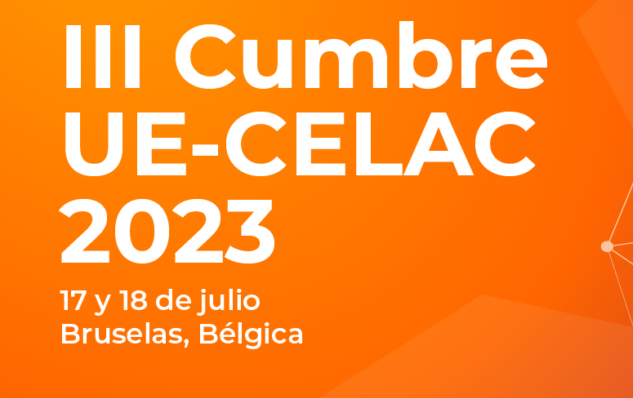
Spain's intentions to redirect the ties between the European Union (EU) and the Community of Latin American and Caribbean States (CELAC) may end up in disarray.
Brussels, July 18 (RHC)-- Spain's intentions to redirect the ties between the European Union (EU) and the Community of Latin American and Caribbean States (CELAC) may end up in disarray.
An impression that today is gaining more ground in view of the reality that the current Spanish Prime Minister, Pedro Sanchez, has one foot inside the CELAC-EU Summit and another outside, around the general elections next Sunday.
Although Sanchez promises to do his utmost to push forward free trade agreements with Chile, Mexico and Mercosur, the clock is ticking against him, because the Spanish elections could leave him out of the Community bloc in the next six months.
During his speech at the summit in this capital, Sanchez advocated for the unity and cohesion of the political forces on both sides, to rescue a relationship that since 2015 had not had a meeting of this rank.
He stressed that the Brussels Summit represents a historic opportunity to continue fostering and perfecting ties, something that, he stressed, is a priority for Spain.
The twenty-seven (EU) are trying to find a road map with the 33 countries that make up Celac, something that although both parties seem to want, it is not clearly visualized.
Yesterday, the first major differences arose over the EU's ideas on the war in Ukraine, in contrast to those of several leaders of the Celac nations, including Brazil.
On the one hand, the EU seeks to balance the growing presence of China in Latin America with a colossal investment plan of 45 billion Euros and to advance in the several times postponed agreement with Mercosur, but Luiz Inácio Lula da Silva, President of Brazil, put a brake on expectations.
Lula da Silva valued that the conflict in Ukraine 'is a confirmation that the UN Security Council does not respond to the current challenges to peace and security'.
"We vehemently repudiate the use of force to resolve disputes (...), we support initiatives promoted by different countries and regions in favor of the immediate cessation of hostilities and a negotiated peace", he sentenced.
The Spanish Chancellor himself, José Manuel Albares, came out on top of the issue, considering that in Latin America there is no deep knowledge of what is happening in Ukraine and Russia's attitude.
For his part, Sanchez sidestepped the issue and highlighted the historical, cultural, economic and social ties that the EU maintains with Latin America and the Caribbean.
"Today, more than ever, it is necessary to renew our common confidence in the values of multilateralism," he said.
"This old Europe, scarred by the scars of ancient conflicts, knows well what it means to ignore the lessons of history," he added.
He also pointed out that Spain assumes the Presidency of the Council of the EU with the desire to move towards a fairer, more united and resilient Europe, and one of its relevant strategies is to count on partners such as Latin America and the Caribbean.
"The current geopolitical, environmental and social context requires redoubling efforts and adapting bi-regional cooperation to challenges that cannot be delayed," he added.
However, last night he was absent from the dinner welcoming the delegations and made a lightning trip to Huesca, Aragon, in northern Spain, to attend an election rally.

